“Sustainability is in the cultural DNA of Italy”
Estimated reading time: 10 minutes
In a quiet Italian town, one rarely instantly thinks that these factories may be on the vanguard of sustainable thinking. However, Italian heritage industries provide an insight into how the classic ‘Made in Italy’ business structure is a sustainable approach which we should all recognise.
At Maxwell-Scott, we aim to act as an antidote to the fast fashion industry as the epitome of fine Italian artistry combined with timeless British design. In fact, our commitment to traditional Italian craftsmanship ensures sustainability at every stage of production from the leather that we work with, to the use of solar-power in our factory and to our belief in durable construction which means that you only ever need to buy once.
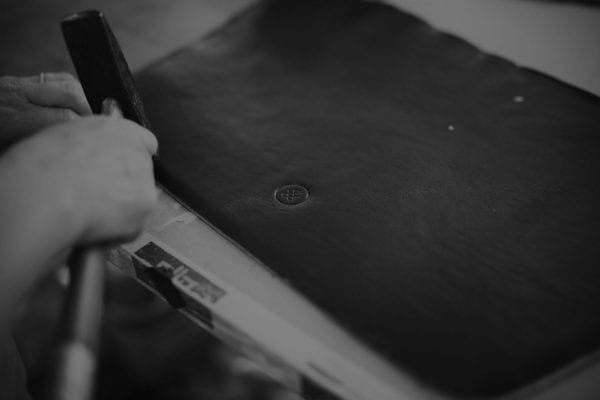
Associate Professor of Business Ethics and Negotiation Teaching Unit at the IESE Business School, University of Navarra, Antonino Vaccaro argues that there are two significant points which are crucial to the “real Italian ethos” as he dubs it in his Forbes article on the topic. Firstly, he comments on the importance of the minimisation of chemicals and the maximisation of tradition whilst focusing on quality over cost-efficiency. This contrasts with mainstream business structures which focus heavily on the bottom line. Vaccaro argues that this unique thinking is also reflected in the questions which Italian companies ask in his consulting role. They simply ask different questions which centre around innovation for social and environmental impact. A prime example of how well Italian companies achieve this sustainable mindset is Brunello Cucinelli. A luxury fashion brand, Brunello Cucinelli has been pursuing sustainability and responsible production in Italy since 1978. Their luxury products are created through a cultural centre beyond the scope of the factory – this is how the workers live well and sustainably. It is an example of a company which focuses on people. As a matter of fact their founder Cucinelli stated that:
“The great dream of my life has always been to work for the moral and economic dignity of mankind”
From this perspective there cannot be any quality without humanity and by extension sustainable and thoughtful production processes.
Additionally, Vaccaro’s second point of the “real Italian ethos” is the importance of origin and certification in materials and production. This is, after all, legislation mirroring what Italian consumers expect – that ‘made in Italy’ means made well and sustainably. Sustainability is one of the pillars of the strategy of the Camera Nazionale della Moda Italiana (National Chamber for Italian Fashion). This is an association that started advocating sustainability as a basic value of the Italian fashion industry in 2010. Their manifesto, published two years later, outlined key guidelines with the hope of designing an Italian way of responsible and sustainable fashion so as to foster an environment in which responsible management is widely adopted. The manifesto includes points concerning designing quality products built to last so as to minimise their impact on ecosystems, management systems which are committed to plans to improve sustainability practices, as well as the use of raw materials, materials and fabrics with a high environmental and social value (for instance materials treated with natural substances). Evidently, Italian heritage industries are crucial emblems of sustainable production processes, due to the DNA of the country which promotes a focus on tradition, quality and culture.
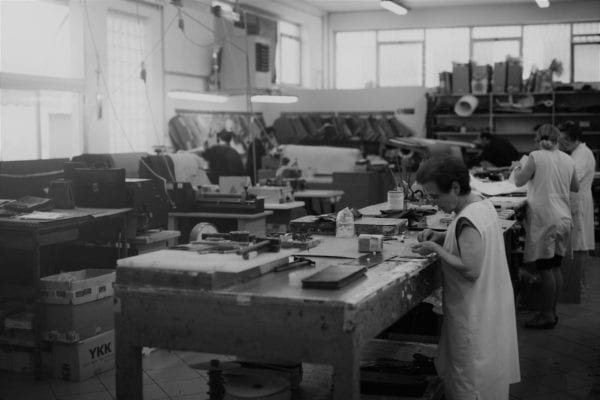
As mentioned in the manifesto of the Camera Nazionale della Moda Italiana, the materials chosen within the Italian fashion industry are picked consciously for their environmental impact. Andrea Crespi, president of the Smi commission, stated that:
“Italian entrepreneurs of textile and apparel industries are masters in the production of well-made yarns, fabrics, garments or accessories with intrinsic value and designed to last for some time“.
Materials are foundational to sustainable production processes. They are, after all, the very inputs with which the people handcrafting end-products begin with. At Maxwell Scott, we use leather sourced from the meat industry to craft products unlike other leather possibilities such as synthetic faux leathers, created from plastic, which are environmentally damaging. This is a sustainable and environmentally thoughtful decision as it utilises a byproduct of such a vast industry which would otherwise be wasted. Our commitment, common within the Italian heritage industries, ensures the first step to our products being sustainable pieces for the environment and the consumer.

“Tuscany’s leather industry is the epitome of how Italian heritage industries are leading the way in terms of sustainability”
This commitment to using leather which is a byproduct of the meat industry is a crucial factor to the Consorzio Vera Pelle Italiana Conciata Al Vegetale (The Genuine Italian Vegetable-Tanned Leather Consortium). The consortium represents the leather heritage industry in Tuscany. Here, artisans have perfected the way in which to treat leather with the most care as antique recipes are combined with being on the vanguard of technological innovation. The consortium has a set of rules to which its members of around 20 tanneries must obey. The most significant of which is the rejection of the use of chemicals. This trademarked vegetable-tanned leather does not contain any toxic substances harmful to man such as azo-dyes, nickel, Pentachloropheno (PCP) or chrome VI. Instead, the leather is treated with natural tannins extracted from tree bark. This is significant not only because there is no harmful chemicals being used but also as it still produces leather with longevity. Due to the process’ respect for the nature of the leather, each of our products will only improve with age as the leather itself develops a unique patina over time. Moreover, a vegetable-tanned leather has chemical-biological characteristics which means that the object can be easily disposed with at the end of its long life. The consortium also ensures that many of the substances used in the tanning process are “recovered, recycled and reused” so as to fulfil the potential of every component of the process. Tuscany’s leather industry is, therefore, the epitome of how Italian heritage industries are leading the way in terms of sustainability as craftsman pursue the same, natural method which has been used for hundreds of years.
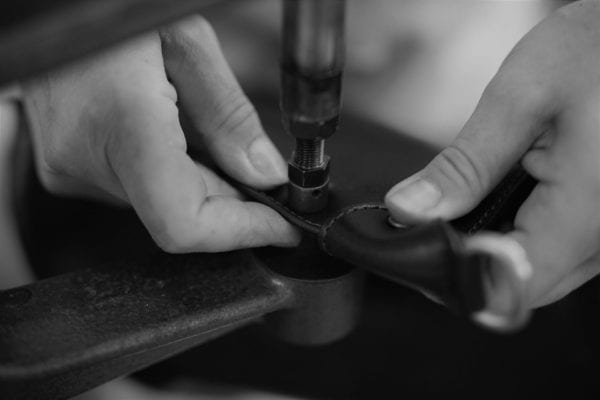
More generally, a discussion concerning chemicals is vital within the context of sustainable production processes in fashion due to the chemicals’ potential to both damage our health and pollute our waterways due to the chemical wastage which is produced during the process. The Associazione Tessile E Salute (Textile and Health Association) was founded in 2001 in Biella, a town in Northern Italy, with the aim to protect the health of consumers in textiles, footwear and fashion. Azo-dyes as mentioned by the Consorzio Vera Pelle Italiana Conciata Al Vegetale, for instance, can be a carcinogenic in high-enough levels. As a result, the focus in Italy on minimising the use of chemicals is not only sustainable but smart. Professor Vaccaro in fact believes that the traditional products produced in Italy stay away from such a chemically intensive process due to the cultural commitment to the land. He mentions the wine industry and those who produce in sustainable ways with the objective of enriching the soil for those who will work the land in the future. Italy is, after all, the leader in environmental legislation – due, from Vaccaro’s perspective, to the inherent sense in the responsibility to the land. Rooting ourselves in the health of the land, waterways and our communities seems crucial to the sustainability of production processes.
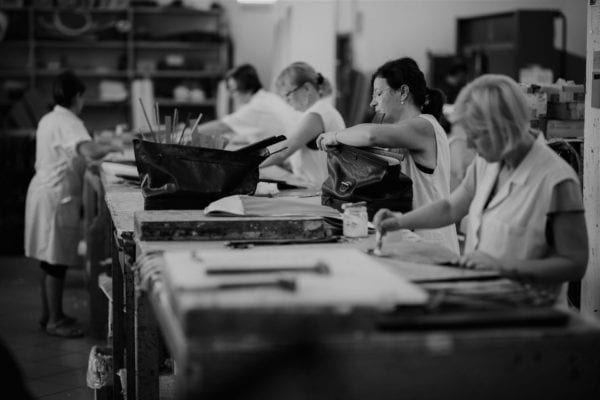
Another crucial factor, according to the Camera Nazionale della Moda Italiana, in the sustainability of Italian production is that products are designed to be durable enough to last a lifetime. At Maxwell Scott we pride ourselves on our commitment to creating pieces which will be treasured for many more years to come – offering a 25 year warranty on all of our products so as to highlight our belief that you may only need one briefcase, for instance, for your whole career. With this we champion caring for our purchases so that they have as long a life as possible and mending rather than throwing away pieces which have been durably crafted from the finest top grain leather. This is slow consumerism. The issue with fast fashion nowadays is the over-consumption of low quality pieces which are worn once and then thrown away. Italian heritage industries, such as the leather industry in which our own products are crafted, produce in order to ensure that consumption can be kept to a minimum. This is crucial as it minimises waste and promotes a sense of mindfulness concerning purchases for the consumer. Vaccaro explains that his grandfather’s 25-year-old jacket – made in Italy of course – is the best example of environmental sustainability that he can offer his students. If we hope to practice more sustainable production processes in the future within the full global supply chain, it is imperative that there is a change in mindset from fast fashion which is easily disposable to pieces which will be adored the years to come. Longevity is sustainable.
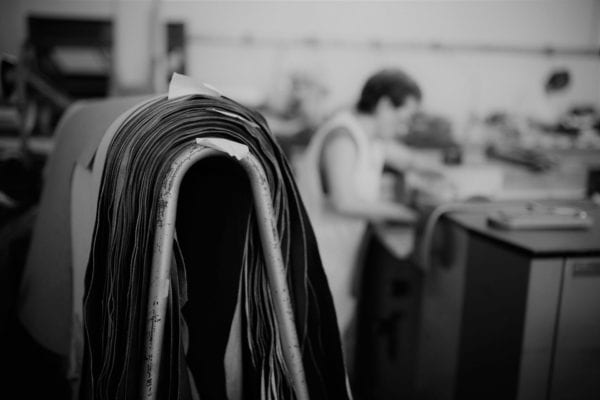
With a global supply chain, adopting these ideas within a broader framework is essential in order to make meaningful inroads towards a sustainable fashion industry in general. However, with fast fashion continuing to fulfil vast consumer-demands for cheap clothing it is important equally to highlight that the Italian way is financially sustainable as well. Firstly, in 2017, Italian industrial production increased by 3.8% whilst World Bank data shows that the country’s CO2 emissions (metric tons per capita) have been decreasing since 2004. This suggests that CO2 emissions can be reduced simultaneously with increasing production – a paradox to some perhaps. Moreover Italy has had the highest industrial growth within Europe over the last 3 years (2015-2017) it would only seem natural for other companies to follow the Italian way.
Secondly Italy is, in fact, the second largest industrial power of Europe; this being impressive when it is such a unique example within the market. This may be due to the fact that Italian industries continue to develop new technologies in order to ensure that they are at the vanguard of sustainability – a heritage status is here not a reason to not innovate as is clear from the Consorzio Vera Pelle Italiana Conciata Al Vegetale which champions antique recipes married with the latest technology. Clearly, the Italian way is environmentally sustainable and still provides a suitable business model which promotes industrial growth. Italian politicians have, therefore, been trying to encourage further sustainable legislation within the EU. Hopefully, it is just a matter of time to educate producers on the positives of a more conscious production process and for consumers to understand importance of shopping sustainably.
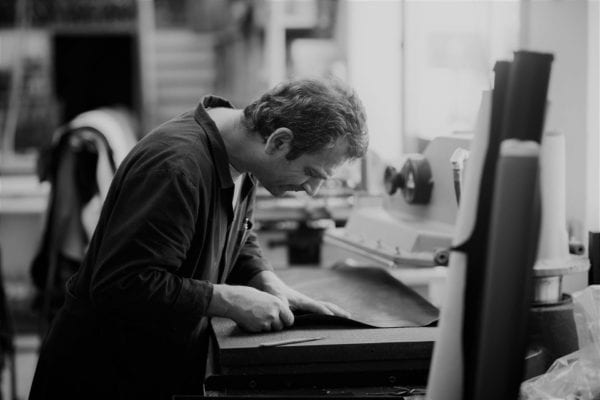
In conclusion Italian heritage industries are leading the way in terms of sustainability through a conscious commitment to every part of the production process – as a well-honed method with cultural significance. This is clear in the “real Italian ethos” concerning the minimisation of chemicals and the maximisation of tradition whilst focusing on quality over cost-efficiency and origin certification. This extends then into the choice of materials used and the chemicals, or more correctly the lack of them, during the production process and the understanding of the importance of the land imbued in Italian DNA. Each end product is also designed to last, with a focus on craftsmanship and durability an antidote to the damaging effects of fast fashion. Despite this more considered approach, Italy has also proved that it is possible to grow and prosper whilst still dedicated to longer and more sustainable practices. What is absolutely certain is that we, at Maxwell-Scott, will always remain commitment to Italian craftsmanship with gifts that last a lifetime.